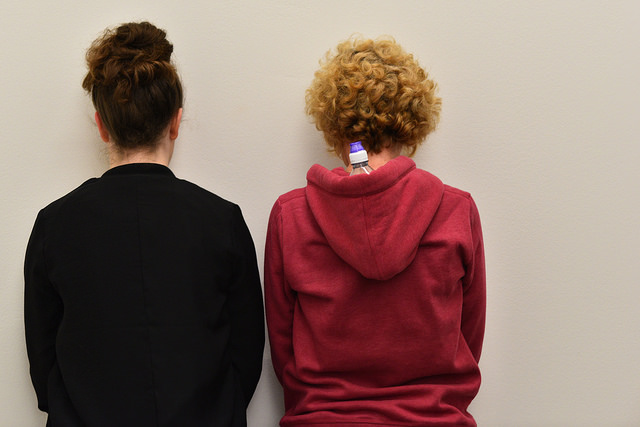opinion
Selling in the oil and gas sector
I recently had the privilege of a discussion on communication with an appreciative reader of my e-book ‘Become the Leader You Are’ based in Texas, Alex Bruns. Alex is an environmental engineer and Geoscience Lead with Baker Hughes, a GE company, which helps oil and gas operators make the most of their reservoirs. The particular sales culture he works in is a blend of toughness – unforgiving as it needs to be in terms of industry safety standards, and straight-talking – and a need to communicate with self-awareness and sensitive awareness of others’ social cues, so as to respond appropriately to the various national and international cultures he interacts with.
Leaders need to understand communication
This demands rather different skills from simply technical capacity and the ability to get things done that most professionals begin their careers with. As careers progress, they require an increasingly nuanced approach – particularly in relation to communication. My experience of coaching senior people has revealed that some leaders develop this approach, learning how to tap in to their self-awareness and to convert that into self-managed communication, and some don’t: the latter stay focused on the task, but seem to forget that leadership means getting things done through people, not in spite of them.
Sophisticated soft skills and cultural sensitivity
The higher you rise in an organisation, the more sophisticated are the soft skills that you need. This doesn’t mean you need to leave your backbone behind. Far from it. You need to know how to stand up for what you believe in and for what’s right for your organisation. The difference between leaders is how you do that. Alex is a leader who has also learnt how to be appropriately vulnerable (and let’s not forget that vulnerability is an important feature of effective leadership) – to know what he doesn’t know, to be able to convey that with balance and integrity, and to simultaneously work with the culture he finds himself in, whether it demands unfamiliar ways of showing respect to those younger or older than him, and new attitudes to customer rights and to how deals are made and kept (by a handshake or a formal contract, for instance). Getting this wrong can be so offensive that it costs a sale.
The perception of power
In the high-stakes climate of the oil and gas industry, from Texas to Saudi, Alex flags the leader’s consistent need for humility, integrity, curiosity, a willingness to think beyond the usual boundaries, trust, an awareness of one’s impact, and a finely-honed capacity to listen and to respect each individual. It needs an awareness that perception of power – so important in a sales environment – is often open to misjudgement: that perception can be about anything from job title to knowledge, dress to gender, position at a table to how talkative an individual is.
Leadership is more than just doing
Alex, like other leaders who are aware that their leadership role means more than simply ‘doing’, has learnt about the tricky balance between insistence and courage, and sensitivity and confidence – and its role in successful selling and client relationships.
Photo by James St. John via Compfight
Leadership, culture and successful selling
Leaders often start their careers by excelling technically. However, as their careers progress, they require an increasingly nuanced approach – particularly in relation to communication. Leadership means getting things done through people, not in spite of them, and leaders need to tap in to their self-awareness and to convert that into self-managed communication. In the high-stakes climate of the oil and gas industry, from Texas to Saudi, the leader has a consistent need for humility, integrity, curiosity, a willingness to think beyond the usual boundaries, trust, an awareness of one’s impact, and a finely-honed capacity to listen and to respect each individual.
Read more »Stretching to breaking point
Some senior people I coach are being stretched to a point where their wellbeing has reached dangerously low levels. At the heart of their recovering their health and balance is the realisation that, whereas they’d previously regarded self-care as selfish, self-indulgent or disposable, not only is it ‘OK’, legitimate and necessary, but also it enables them to make a better job of their jobs and their relationships in and out of work, enhancing their efficiency, their insight, the ability to take a broader perspective, their emotional intelligence, and the quality of their judgments and decisions.
Read more »Whose life is it anyway? Loyalties and agendas
Leaders may give away their authority by prioritising other people’s agendas and interests over their own – often indiscriminately and usually unconsciously. This blind loyalty to an assumption that questioning or challenging someone’s else’s agenda isn’t possible can, in turn, be down to another loyalty. This underlying loyalty can be to the leader’s outdated or misplaced belief that they have to do everything themselves if things are to get done to the necessary standard. This thinking habit or indeed a lack of thought - and the consequences - can be damaging to their leadership, career prospects, reputation, effectiveness, relationships, judgements and decisions. Leaders need to remember to be aware of the moment when a situation is drawing them in, and to give themselves space to think and options for alternative action.
Read more »Compassion: a business issue
Paul Gilbert, Professor of Clinical Psychology at the University of Derby, defines compassion as "a sensitivity to suffering in self and others with a commitment to try to alleviate and prevent it" – and he notes that the core of compassion is courage. Far from being a soft issue, his scientific perspective is directly relevant to how organisations can boost their effectiveness. Compassion can do much to restore trust, confidence and a sense of safety in the individual and in the system – and it’s partly about both presence and acceptance, with a close link to mindfulness. Leaders and their reports can take practical steps to boosting both their self-compassion and their compassion towards others.
Read more »Building resilience in a tougher world
We all - and particularly leaders - seem to be experiencing more and more pressure in our modern world. The need to build and maintain resilience seems more pressing than ever. By ‘resilience’ I mean not so much the ability to simply cope, but more the capacity to consistently adapt to changing circumstances, to learn from adversity, and to manage intense emotions and uncomfortable thinking in oneself and others. We need to learn to flex in our responses to adversity.
Read more »'Just being': my article in Coaching at Work
Transactional coaching objectives are irrelevant to some of my clients. 'Doing’ keeps them out of trouble but offers no fulfilment or satisfaction, whereas - ironically - 'being' and objective-free coaching offers them the time and space that are essential for them to profoundly engage with their coaching objectives
Read more »Honesty, wellbeing and mental health
Mental ill-health in organisations may be a taboo subject and may carry a stigma. Sufferers may suffer in silence until their condition worsens to the point of crisis. When crisis does strike, in addition to individuals’ difficulties, the organisational upheaval and cost can be significant, as can the damage to working relationships. However, in an open culture people are more likely to feel engaged and to give of their best, and evidence shows that business results are much better than in cultures where the issue is not faced. It is the coach's responsibility to work with whatever shows up - but not to aim to heal or cure.
Read more »A sense of belonging
The deepest human need is to belong. A strong sense of belonging and connectedness is positively associated with wellbeing, happiness and mental health. Feelings of belonging are understood to influence an individual’s identity and the extent to which they feel accepted, respected, valued for who they are - and these feelings in turn, by strengthening relationships, impact on engagement, effectiveness and productivity
Read more »Confidence, effectiveness and systems
Confidence that is depleted – which often results from an individual interpreting an external event or behaviour, and believing (albeit unconsciously) the message that they construct from it – leads very easily to effectiveness that is depleted. Looking outwards from the individual into their environment and the systems of relationships they are part of is often a more elegant and rapid process, offering more sustained and richer outcomes for rebuilding and re-resourcing, than cognitive approaches.
Read more »Stress, relationships and business results
Line managers can unwittingly create damaging stress in the relationships they have with their reports. This can come from their modelling themselves against others whose values they don't share - and once they allow themselves to be their authentic selves their working relationships can be transformed. Systemic coaching blended with comfort working with mental health issues can resource the client in valuable ways.
Read more »











